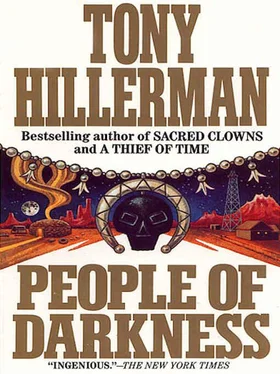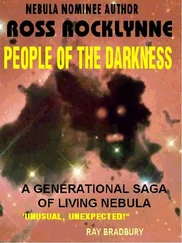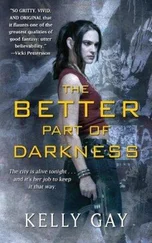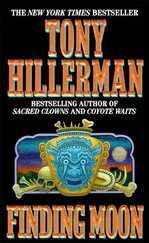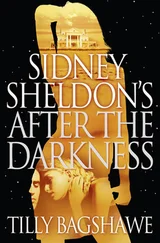“You presume it was stolen?”
“I presume his relatives collected him,” Dr. Vassa said. “The Albuquerque police thought we might have just misplaced it somewhere.” She laughed, but she didn’t think it was funny.
“All we actually know is that one of the morgue carts was found the next morning in the hallway near the loading dock. Presumably it was used to move the body. And we found that the bag of personal effects that belonged to a second body in the morgue was also missing. It seems safe to presume that someone got into the morgue, picked up the wrong bag of personal effects, put the bag on the cart with the body, rolled it down the hallway to the loading dock, and loaded everything into a car or something.”
“It was being held for an autopsy?”
“It was supposed to be held for an autopsy.”
“Why the autopsy?”
“It’s the routine. We’re studying cancer. How it affects cells. How treatment affects tumors. Effect of treatment on blood platelets. On bone marrow. Metastasis. So forth.”
“Metastasis?”
“Spreading. How cancer spreads from one part of the body to another.”
“You didn’t suspect foul play?” Chee asked.
Dr. Vassa smiled, very faintly. “You don’t get leukemia through foul play. It’s not like a poison. And it’s not like an infectious disease, which you could cause by inserting a bacteria. It’s caused by…” Dr. Vassa hesitated.
Jimmy Chee waited, curious. How would this woman describe the origins of leukemia to a Navajo?
“We don’t know exactly what causes it. Perhaps some sort of virus. Perhaps some malfunction in the bone marrow, where blood cells are produced.”
Fair enough, Chee thought. He couldn’t have done better himself.
“And it’s rare, especially among adults?”
“Relatively,” Dr. Vassa said. “I think the current case rate for all sorts of malignancies this year is less than three per thousand. Leukemic diseases are about one percent of that. Say three in a hundred thousand.”
“Three per thousand?” Mary Landon said. “What would you think of a situation in which you had six men, friends, members of the same church, sort of distant relatives, and three of them die of cancer?”
“I’d be surprised,” Dr. Vassa said.
“How surprised?” Mary Landon asked. “Three out of six instead of three out of a thousand.”
“It would be quite a coincidence,” Dr. Vassa said, “but things like that can happen. Mathematical probabilities work in odd ways. Was Emerson one of the three?”
“He was the son of one of the three,” Chee said.
“His father died of cancer?”
“That’s what we’re told,” Mary said.
“But you don’t know for sure?” Dr. Vassa asked. “Did they all live in the same area? Work at the same jobs? I think if they really did all die of cancer our epidemiology people would be interested.” Dr. Vassa smiled. “Especially if it happened to be cancer of the gall bladder. They’re fascinated by that.” She reached for the phone. “I’ll make you an appointment with Sherman Huff.”
Sherman Huff’s office was in the basement. Dr. Huff asked questions and took notes, and picked up the telephone. “Three out of six is unusual,” he said. “So first we try to find out if the tumor registry has them.” He spoke into the telephone, identifying himself and reading the names of Dillon Charley, Roscoe Sam, and Woody Begay off his notes. He kept the receiver pinned to his ear with a raised shoulder and turned back to Chee and Mary Landon.
“Just be a minute or two,” he said. “It’s a matter of checking the names with the computer. The registry tries to keep a file on every cancer case diagnosed in the state, but these were way back when they were first setting it up. And it could be they were out on the reservation, where they weren’t diagnosed.”
“In other words, if you don’t have the names registered, it won’t necessarily mean they didn’t have cancer?”
“Not from the early 1950s it won’t,” Huff said. “And not from the Navajo reservation. However, even in those days, they were getting most of them. They had a pretty good…”
The telephone said something into Huff’s ear. “Just a second,” he said.
He made a note. “Okay,” he said. He wrote again. “Thanks. Pull the folders for me. I’ll want to look at them.” He hung up and glanced at Chee.
“Dillon Charley, leukemia. Roscoe Sam, malignancy affecting liver and other vital organs. Woody Begay, leukemia.” Huff’s face was thoughtful. “That’s a hell of a lot of cancer,” he said. “And a lot of leukemia for men their ages.”
“And Emerson Charley,” Mary Landon added. “He also died of leukemia.”
“That’s what Vassa told me,” Huff said. “Let’s make sure. Let’s get that folder, too.” He dialed the phone again.
“While you have them, give them some more names,” Chee said. “Give them Rudolph Becenti, Joseph Sam, and Windy Tsossie.”
“Those the other three of the six? You hear they had cancer, too?”
“All we know is that Joseph Sam probably died back in the 1950s, and we couldn’t find Becenti or Tsossie,” Chee said.
“Tumor registry data is confidential,” Huff said. “I can confirm a cancer death for law enforcement. I’m not sure I can just go on a fishing expedition for you.”
“I’m only trying to confirm that their cause of death was cancer. It saves me time. Otherwise, I’d have to go hunting for death certificates in county courthouses.”
Huff talked into the telephone again. He asked for the Emerson Charley file and a check on Tsossie, Becenti, and Joseph Sam. Then he waited, phone to ear. He was a burly man, with a gray mustache merging into a bushy gray beard, sun-weathered skin, and bright blue eyes. Behind him, the wall was covered with posters: “Smoke Can Make Your Doctor Rich.” “Little Orphan Annie’s Parents Smoked.” “Stamp Out Old Age: Smoke!” “To Kill a Mockingbird: Blow Smoke on It.” In the silence, Chee became conscious of a tapping. Mary’s little finger was drumming against the arm of her chair. The telephone receiver made a sound.
“Go ahead,” Huff said. He wrote on his note pad. “Okay,” he said. “I’d like to see them all.” He hung up and sat for a moment looking silently at what he had written. “Well,” he said.
“Another one?” Mary asked.
“Rudolph Becenti,” Dr. Huff said. “Another form of leukemia.”
“That’s four out of six,” Mary Landon said.
“That sure is,” Dr. Huff said. “That’s a hell of a high percentage.”
“How about the other two?” Chee asked. “Tsossie and Joseph Sam?”
“Neither name showed up,” Huff said. He was frowning. “Four out of six,” he said. “What in the world could account for that? What were they doing?”
“In 1948 they were the members of a roustabout crew on an oil well out near Grants,” Chee said. “The common labor. Beyond that they were all members of the same little cult in the Native American Church.”
“They ever work in the uranium mines out there? We think we had a little increase from that. But that was lung cancer.”
“Not as far as we know. And the mining was just getting well started in Ambrosia Lakes when these guys were dying,” Chee said.
“How about asbestos? Were they installing insulation?” He shook his head. “No. Inhaled asbestos fiber is a carcinogen, but nothing like this. Nothing like four out of six. And not that quickly. And it’s the wrong kind of cancer. You know anything else about them?”
“Damn little,” Chee said.
“Did they ever work up at the Nevada test site? Did they work up there when we were doing that atmospheric testing of the bombs?”
Читать дальше
